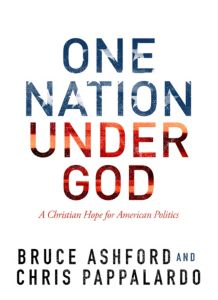This made me smile - a number of different versions are doing the rounds (I've added a few of my own)
:
John Calvin: He was able to because of the grace of God.
Peter: What chicken? What road? Never knew a chicken!! (rooster crows)
Ezekiel: God revived those chicken bones and then they crossed the road.
Thomas: I won’t believe the chicken crossed unless I see it with my own eyes.
Paul: The chicken went to sleep and fell out the window only to be able to cross the road
Moses: And the Lord said: "Thou shalt cross the road"
Rick Warren: The chicken was purpose driven.
Pelagius: Because the chicken was able to.
Irenaeus: The glory of God is the chicken fully alive.
John Piper: God decreed the event to maximize his glory. OR . . . it was an act of Christian hedonism. The chicken realized that his greatest joy would only be found on the other side.
Irenaeus: The glory of God is the chicken fully alive.
C.S. Lewis: If a chicken finds itself with a desire that nothing on this side can satisfy, the most probable explanation is that it was created for the other side.
Graham: The chicken was surrendering all.
Pluralist: The chicken took one of many equally valid roads.
Universalist: All chickens cross the road.
Martin Luther: The chicken was fleeing the Antichrist who had stolen the Gospel with his papist lies.
Tim LaHaye: The chicken didn’t want to be left behind.
James White: I reject chicken centred eisegesis.
John Wesley: The chicken’s heart was strangely warmed.
Rob Bell: The chicken. Crossed the road. To get. Cool glasses.
Harold Camping: Don’t count your chickens until they’ve hatched.
Benny Hinn: If I was a chicken I'd cross the road too. Now, HEAL chicken !!
Joel Osteen: The chicken crossed the road to maximize his personal fulfilment so they he could be all that God created him to be.
Roger Olson: The chicken recognizes no clear evangelical boundaries.
Mark Driscoll: A [bleeping] chicken crossed the road to go get a beer.
Jim Wallis: The chicken is an organizer for Occupy Barnyard.
Emergent: For this chicken, it's not the destination that’s important. Its the journey itself.
Greg Boyd: It’s a possibility that the chicken crossed the road.
N.T. Wright: This act of the chicken, which would be unthinkable in British barnyards, reeks of that American individualism that is destructive to community.
Al Mohler: When a chicken begins to think theologically, he has no other alternative but to come over to the Calvinist side of the road.
Michael Horton: The chicken was forsaking the kingdom of this world to live solely in the Kingdom of Christ.
John Frame: The chicken had an existential need to change its situation according to a new norm.
T.F. Torrance: The inner logic of the incarnation proved an irresistible draw to the other side of the road.
Dietrich Bonhoeffer: He was abandoning cheap grace for the costly discipleship of risking the dangers of crossing the road.
Karl Barth: The crossing of the road, like all true theology, was done for profoundly Christological reasons. Because Christ came as the judge to be judged, all chickens cross the road in the end.
Paul Tillich: Because he sensed that the other side of the road represented the ground of all being.
New Ager: Because he saw the light beckoning him forward.
Fundamentalist: Because his pastor tells him so.
Gary Demar: The chicken was fleeing the destruction of Jerusalem in AD 70. That’s it.
Annihilationist: The chicken was hit by a car and ceased to exist.
Biblicist: because the Bible tells him so
Buber: I and Thou, Chicken.
Methodist Church: Road-crossing chickens are affirmed in our churches regardless of their motives or sexual orientation.
Anglican vicar: Chickens have rights too. This chicken must not be in any way prevented from running across the road. Let us show a caring and pluralistic spirit as we identify with the chicken in its plight.
Anglican PCC: We don't know yet - but we'll form a sub-committee to investigate.
Liberation Theologian: Because that's where the poor are.






